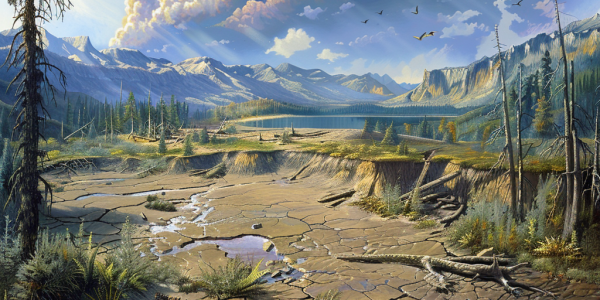Ancient Climate Shift Paved the Way for Dinosaurs’ Dominance
Recent research reveals how the Carnian Pluvial Episode, a significant climatic event 233 million years ago, triggered the rise of dinosaurs and reshaped Earth’s biodiversity. This study highlights the impact of volcanic eruptions on climate and draws parallels to modern climate change, emphasizing the importance of understanding our planet’s history for future ecological challenges.
NASA’s Plans for the Next Supervolcano
NASA has proposed plans to potentially shut down a supervolcano if it shows signs of an imminent eruption. New research from NASA and Columbia University suggests that the most powerful scale of eruption would likely not cause global devastation, despite the massive amount of material it would emit into the atmosphere. The study’s lead author, Zachary McGraw, explains that the relatively modest temperature changes found in the research could explain why no single super-eruption has produced evidence of global-scale catastrophe for humans or ecosystems.


